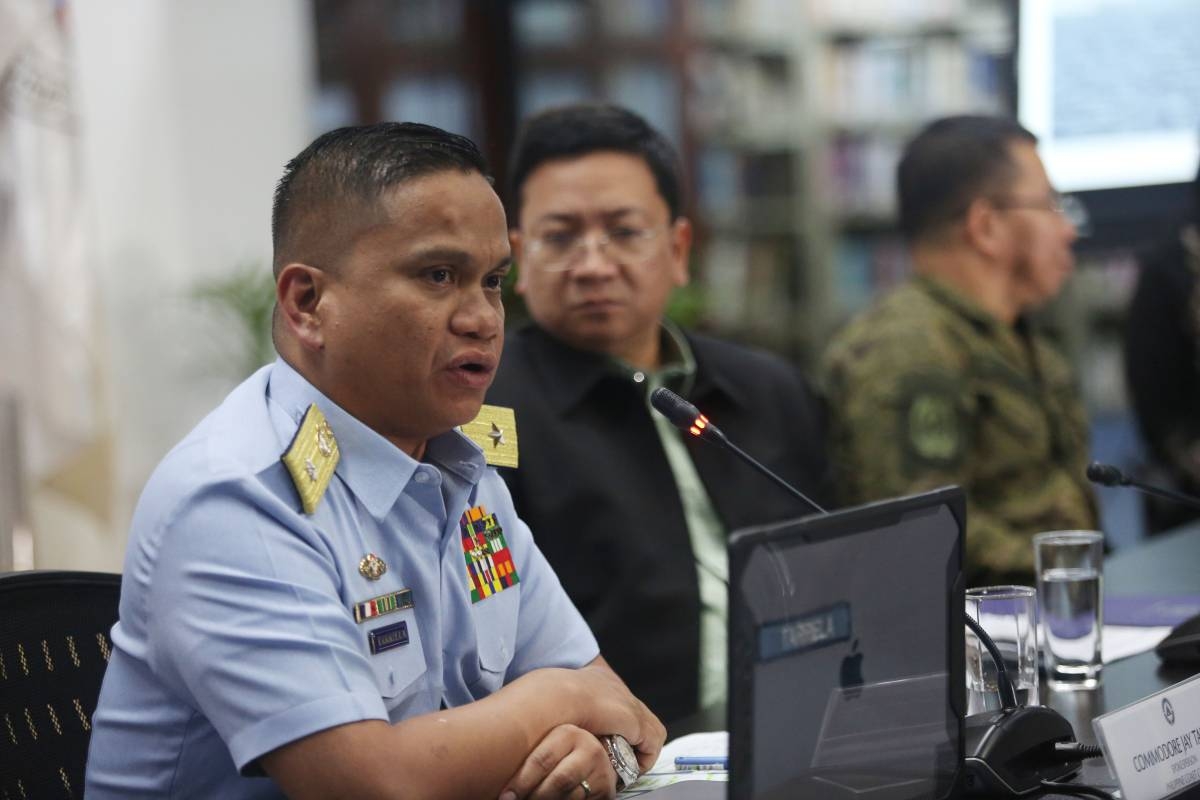The Philippine Coast Guard (PCG) has launched an investigation into claims made by Filipino fishermen that they were harassed by Chinese Coast Guard personnel while gathering seashells in Bajo de Masinloc, also known as Panatag Shoal, in the West Philippine Sea (WPS) on January 12. The PCG has taken note of a circulating video depicting the alleged act of harassment and is currently in the process of gathering sworn statements from the individuals featured in the video.
According to Commodore Jay Tarriela, the PCG spokesperson, Jack Tabat from the province of Zambales has confirmed that the video originated from their boat, the “FB Legendary Jo.” Tabat, in his sworn statement, revealed that five Chinese Coast Guard (CCG) personnel on a rubber boat approached several Filipino fishermen who were collecting seashells near the south entrance of the Panatag Shoal. Four of the CCG personnel disembarked and demanded that the Filipino fishermen return the seashells they had gathered. Furthermore, Tabat stated that the CCG personnel prevented the Filipino fishermen’s boat from leaving until the collected seashells were returned.
The PCG is now awaiting the return of the fishing vessel that was subjected to the alleged harassment by the CCG. It is important to note that Bajo de Masinloc is situated 220 kilometers off the coast of Zambales in Luzon, within the Philippines’ 200 nautical-mile exclusive economic zone.
This incident raises concerns about the ongoing tensions in the West Philippine Sea, particularly between the Philippines and China. The West Philippine Sea is a region of strategic importance due to its rich marine resources and potential reserves of oil and gas. However, conflicting territorial claims have led to disputes between neighboring countries, including China, the Philippines, Vietnam, Malaysia, and Taiwan.
The Philippines has consistently maintained that Bajo de Masinloc falls within its exclusive economic zone, as defined by the United Nations Convention on the Law of the Sea (UNCLOS). UNCLOS grants coastal states sovereign rights over their exclusive economic zones, including the exploration and exploitation of natural resources. However, China has disputed these claims and has been asserting its presence in the area.
The alleged harassment of Filipino fishermen by Chinese Coast Guard personnel is not an isolated incident. Similar encounters have occurred in the past, highlighting the challenges faced by Filipino fishermen in accessing their traditional fishing grounds. These incidents not only affect the livelihoods of Filipino fishermen but also contribute to the overall tensions in the region.
The Philippine government has consistently raised its concerns about these incidents through diplomatic channels and multilateral platforms. It has called for the peaceful resolution of disputes based on international law, particularly UNCLOS. The Philippines has also sought the support of its allies and partners in upholding the rule of law and ensuring freedom of navigation and overflight in the West Philippine Sea.
The international community has a vested interest in maintaining peace and stability in the West Philippine Sea. It is crucial for all parties involved to exercise restraint, adhere to international law, and engage in dialogue to address the underlying issues. The harassment of Filipino fishermen not only violates their rights but also undermines efforts to promote cooperation and trust among neighboring countries.
In conclusion, the Philippine Coast Guard’s investigation into the alleged harassment of Filipino fishermen by Chinese Coast Guard personnel in the West Philippine Sea highlights the ongoing tensions in the region. It is imperative for all parties to find peaceful and diplomatic solutions to address these disputes and ensure the protection of the rights and livelihoods of fishermen. The international community must continue to support efforts to uphold the rule of law and promote stability in the West Philippine Sea.







